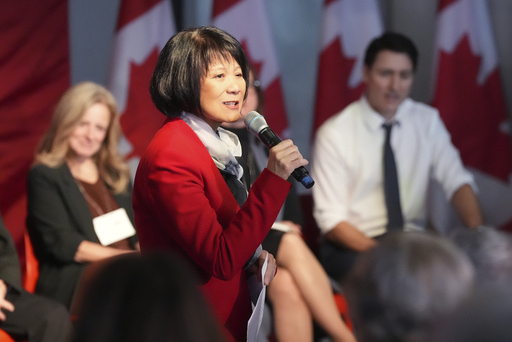
Prime Minister Justin Trudeau addressed an audience of business and labor representatives on Friday, revealing that former President Donald Trump mentioned the idea of making Canada the 51st state of the U.S., a concept he termed “a real thing.” This information was unintentionally broadcast through a loudspeaker during a private gathering, as reported by local media.
Trudeau reportedly indicated that Trump views Canada’s vast natural resources as a significant incentive for such an action. “Mr. Trump has it in mind that the easiest way to do it is absorbing our country… In my conversations with him…” he began before the microphone failed, according to reports. He reiterated that the U.S. is acutely aware of Canada’s resources and expressed a strong interest in benefiting from them.
After the incident, Trudeau’s office did not issue an immediate comment regarding the remarks. However, Gil McGowan, who leads the Alberta Federation of Labor, confirmed Trudeau’s assertions on the social media platform X, stating that the Prime Minister believes Trump’s true intention extends beyond narcotics and immigration issues and rather aims at dominating or outright taking Canada.
In Trudeau’s public discussion that day, he emphasized the importance for Canada to approach the situation with Trump, especially given the threats of imposing significant tariffs on imports from Canada. During a one-day summit focused on the Canada-U.S. economic relationship held in Toronto, he advocated for strategic thinking to navigate these challenges. Trudeau insisted on the necessity of collaborating with the U.S. to avert tariffs and sought to bolster trade with other nations while advocating for the removal of internal trading barriers.
“This is a moment… that really matters in our country’s history,” Trudeau remarked. He noted that Trump had recently postponed threats related to a 25% tariff on imports from Canada and Mexico for 30 days, which included an additional 10% tariff specifically on Canadian oil, gas, and electricity imports.
Trump’s threats to impose tariffs were designed to encourage cooperation in combatting illegal immigration and the fentanyl crisis. He has expressed intentions to use tariffs as a means to enhance domestic manufacturing and generate federal revenue. Trudeau outlined that Canada plans to utilize this grace period to demonstrate to U.S. officials its significant investment in border security, which totals $1.3 billion CAD ($900 million USD) to include enhanced technological surveillance and the hiring of additional border staff.
He also announced the intention to appoint a dedicated fentanyl czar to serve as the main connection between the Canadian and U.S. governments, despite the fact that a minimal fraction of fentanyl and illegal immigration crossing into the U.S. originates from Canada. Trudeau emphasized the necessity for a focused dialogue with the U.S. to clarify Canada’s minor role in the overall North American fentanyl crisis.
Trudeau acknowledged the need for preparedness should Trump proceed with the tariff implementation post-30 days, stating, “We need to be ready to respond robustly.” He also mentioned the importance of supporting Canadians amid potential tariff repercussions. The Canadian government had initially prepared to retaliate against U.S. tariffs with a 25% levy on $155 billion CAD ($109 billion USD) worth of U.S. goods.
Moreover, Trudeau highlighted the importance of achieving true free trade within Canada while enhancing trade ties with global partners. Candace Laing, the president and CEO of the Canadian Chamber of Commerce, expressed her approval of the meeting’s focus on internal trade, trade diversification, and addressing U.S. tariffs. “It’s clear that we can’t just tinker around the edges with incremental steps right now. We’ve got to be bold so that businesses and communities can pivot to be more resilient,” Laing remarked in a statement.

